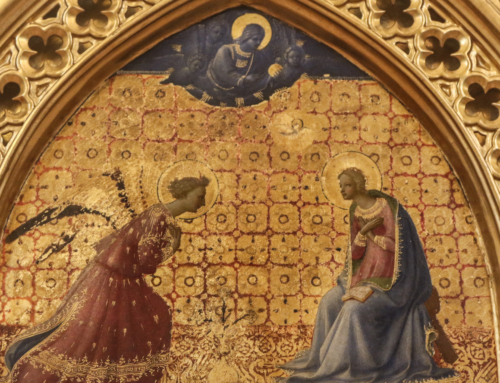I’ve never seen Andrew Lloyd Webber’s musical, Jesus Christ Superstar, but one of its hit songs, “I Don’t Know How to Love Him,” pops up on my internal playlist with some frequency. I first came across the song in a book of show tunes I was plunking out on the piano and the lyrics ensconced themselves in my head where they have rattled around for a few years. In the glow of the spotlight cast by studying theology, this song has resurfaced at times during my meditations on what it means to love God.
In the song, Mary Magdalene confesses that she doesn’t know how to react to the changes in her life since meeting Christ:
I don’t know how to love him
What to do, how to move him
I’ve been changed, yes, really changed
In these past few days
When I’ve seen myself
I seem like someone else
Her problem is that she thinks of Jesus as “a man . . . just a man,” like the many men that she knew in her life before Christ. But this isn’t how we should approach Christ—as any other man—because he is unlike any other man. By her faltering love, this Magdalene demonstrates a warped version of the Thomistic axiom: deficient knowledge makes for deficient love.
Jesus is the Word made flesh, who came among us to reveal the love that God has for us, to die for our salvation, and to lead his Church to glory. Charity loves Christ as he is in himself. If we are going to love Christ with the burning ardor of charity we must love him for who he is, not who we make him out to be. We don’t need to know everything about his divine nature (a task that is impossible), but we need to acknowledge the truth he has revealed about himself. The Mary Magdalene of Jesus Christ Superstar senses that there is something special about the man who attracts her. But she is unwilling to accept the understanding of Christ that comes by faith, and so she is left scared and confused, confronted by a love she cannot receive or understand.
Yet, if he said he loved me
I’d be lost, I’d be frightened
I couldn’t cope, just couldn’t cope
I’d turn my head, I’d back away
I wouldn’t want to know
He scares me so
In contrast to Lloyd Webber’s searching and angsty ballad stand the lyrics of another Englishman: “A Child My Choice” by Saint Robert Southwell (set, here, to the tune of “Auld Lang Syne”). Rather than the agitated apprehension expressed by Lloyd Webber’s Mary Magdalene, Southwell’s poem rings out in sure and lofty praise of the Christ child. What attracts the poet’s devotion is not merely human love engendered by the babe’s infant charms, but the infant Christ’s divine goodness itself.
Love’s sweetest mark, laud’s highest theme, man’s most desired light,
To love Him life, to leave Him death, to live in Him delight.
. . .
Though young, yet wise; though small, yet strong; though man, yet God He is:
As wise, He knows; as strong, He can; as God, He loves to bless.
His knowledge rules, His strength defends, His love doth cherish all;
His birth our joy, His life our light, His death our end of thrall.
Southwell loved Christ in this way because he had come to know him through prayer and study. He received the love that Christ first offered him by the grace of faith and was able to respond with love of his own. Southwell knew the sacrifice involved in loving Christ and, by his eventual martyrdom, conformed himself perfectly to Christ’s own love unto death. Such a loving sacrifice cannot be made for a mythic or unknown stranger, but only for the one who is our first and best friend. May God grant us the grace of faith to embrace the mystery and glory of the Incarnation and set our hearts ablaze with true and perfect love for Christ.
✠
Photo by Decca Records







